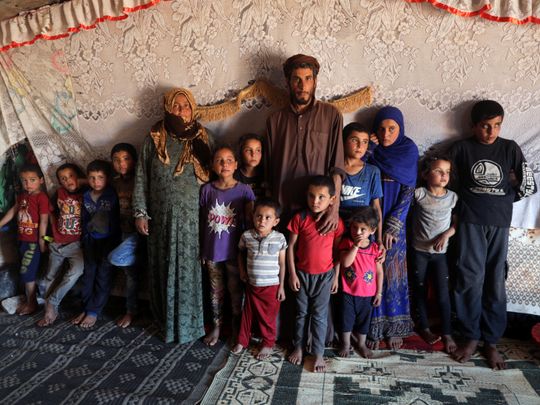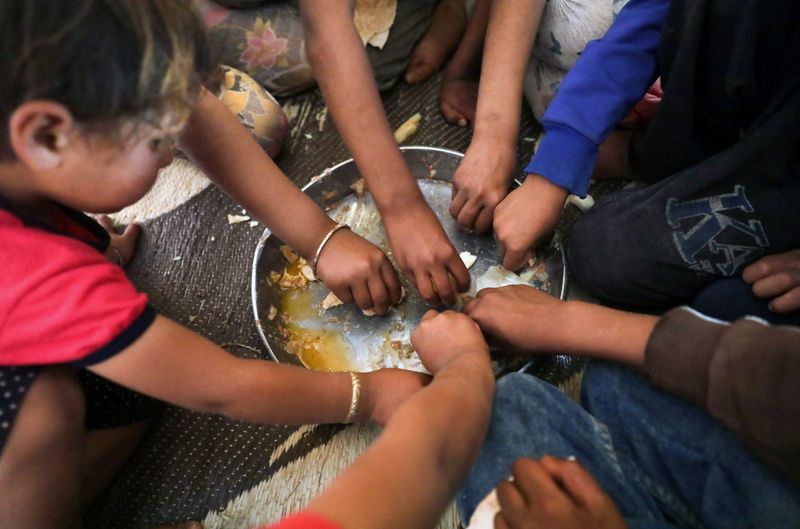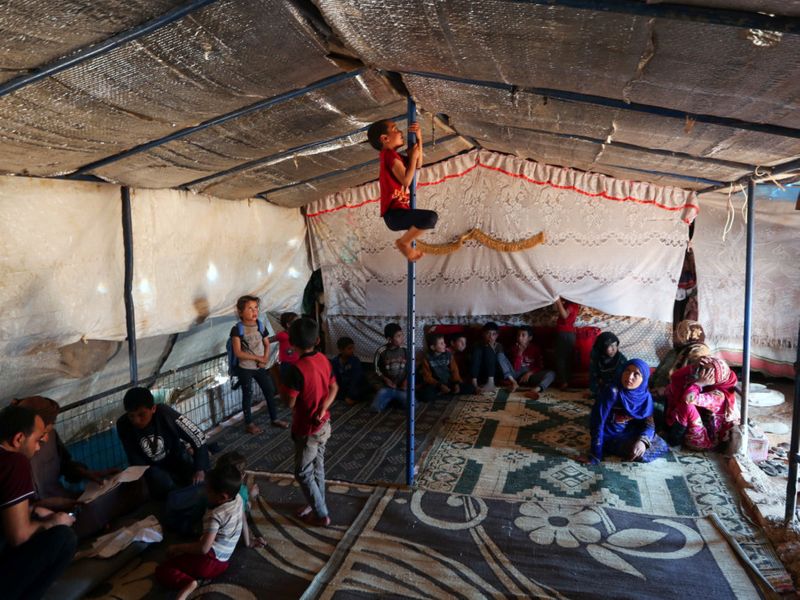
Idlib, Syria: Providing for 16 children including four sets of twins is only getting harder for Ahmad Yassin Al Ali and his wife Fawza Umri, Syrians who were forced to flee their home nearly a decade ago and are now crammed into a tent at the Turkish border.
Ali, whose wife is eight months pregnant with more twins, says the little money he can scrape together gathering and selling scrap plastic buys less and less, reflecting soaring prices caused by the collapse of Syria’s currency.
“Two of my children help me. The days I can sell, I buy bread, potatoes and tomatoes,” Ali said. “Because of the collapse of the Syrian currency, prices have increased to the point where we don’t have the money to buy food and bread.” The opposition-held area where Ali, 35, and his family live in Idlib falls outside President Bashar Al Assad’s control, but the pound is still used there.

The UN agency OCHA says the halving of its value since the beginning of May has pushed the price of basic necessities to record highs and further out of reach of the 4 million people in the area.
Umri, 35, says the recent Eid Al Fitr holiday, marking the end of the Islamic fasting month of Ramadan, was a time for despair rather than celebration. “I hated my life,” she said.
One of their daughters suffers from hearing difficulties and is unable to speak, and another is paralysed on one side, but they cannot afford medical treatment.
“Food is a big problem for us. We cannot buy vegetables and most days they eat bread and nothing else,” she said.
The war has killed hundreds of thousands of people, uprooting more than 6.6 million in Syria and forcing 5.5 million to flee to neighbouring countries.









